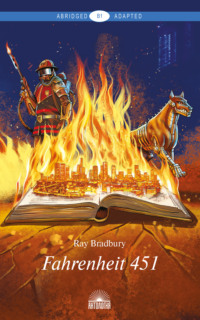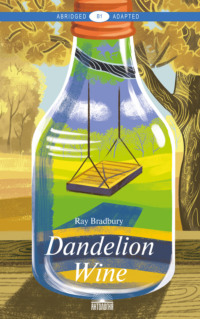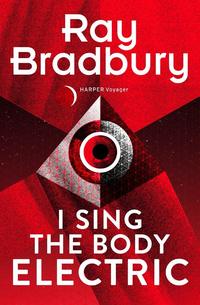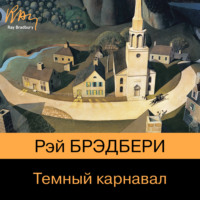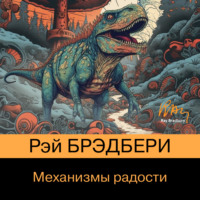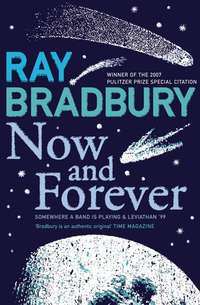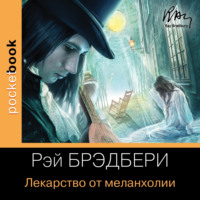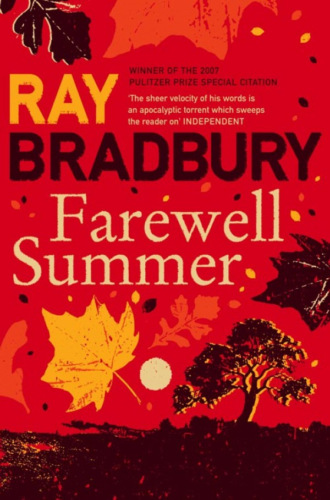
Полная версия
Farewell Summer


Farewell Summer
RAY BRADBURY

With love to John Huff, alive many years after Dandelion Wine
CONTENTS
I
Almost Antietam
Chapter One
Chapter Two
Chapter Three
Chapter Four
Chapter Five
Chapter Six
Chapter Seven
Chapter Eight
Chapter Nine
Chapter Ten
Chapter Eleven
II
Shiloh and Beyond
Chapter Twelve
Chapter Thirteen
Chapter Fourteen
Chapter Fifteen
Chapter Sixteen
Chapter Seventeen
Chapter Eighteen
Chapter Nineteen
Chapter Twenty
Chapter Twenty-One
Chapter Twenty-Two
Chapter Twenty-Three
Chapter Twenty-Four
Chapter Twenty-Five
Chapter Twenty-Six
Chapter Twenty-Seven
Chapter Twenty-Eight
Chapter Twenty-Nine
Chapter Thirty
Chapter Thirty-One
Chapter Thirty-Two
Chapter Thirty-Three
Chapter Thirty-Four
Chapter Thirty-Five
III
Appomattox
Chapter Thirty-Six
Chapter Thirty-Seven
Afterword: The Importance of Being Startled
About the Author
Also by Ray Bradbury
Copyright
About The Publishers
I.
CHAPTER ONE
There are those days which seem a taking in of breath which, held, suspends the whole earth in its waiting. Some summers refuse to end.
So along the road those flowers spread that, when touched, give down a shower of autumn rust. By every path it looks as if a ruined circus had passed and loosed a trail of ancient iron at every turning of a wheel. The rust was laid out everywhere, strewn under trees and by riverbanks and near the tracks themselves where once a locomotive had gone but went no more. So flowered flakes and railroad track together turned to moulderings upon the rim of autumn.
‘Look, Doug,’ said Grandpa, driving into town from the farm. Behind them in the Kissel Kar were six large pumpkins picked fresh from the patch. ‘See those flowers?’
‘Yes, sir.’
‘Farewell summer, Doug. That’s the name of those flowers. Feel the air? August come back. Farewell summer.’
‘Boy,’ said Doug, ‘that’s a sad name.’
Grandma stepped into her pantry and felt the wind blowing from the west. The yeast was rising in the bowl, a sumptuous head, the head of an alien rising from the yield of other years. She touched the swell beneath the muslin cap. It was the earth on the morn before the arrival of Adam. It was the morn after the marriage of Eve to that stranger in the garden bed.
Grandma looked out the window at the way the sunlight lay across the yard and filled the apple trees with gold and echoed the same words:
‘Farewell summer. Here it is, October 1st. Temperature’s 82. Season just can’t let go. The dogs are out under the trees. The leaves won’t turn. A body would like to cry and laughs instead. Get up to the attic, Doug, and let the mad maiden aunt out of the secret room.’
‘Is there a mad maiden aunt in the attic?’ asked Doug.
‘No, but there should be.’
Clouds passed over the lawn. And when the sun came out, in the pantry, Grandma almost whispered, Summer, farewell.
On the front porch, Doug stood beside his grandfather, hoping to borrow some of that far sight, beyond the hills, some of the wanting to cry, some of the ancient joy. The smell of pipe tobacco and Tiger shaving tonic had to suffice. A top spun in his chest, now light, now dark, now moving his tongue with laughter, now filling his eyes with salt water.
He surveyed the lake of grass below, all the dandelions gone, a touch of rust in the trees, and the smell of Egypt blowing from the far east.
‘Think I’ll go eat me a doughnut and take me a nap,’ Doug said.
CHAPTER TWO
Laid out in his bed at his own house next door with a powdered–sugar moustache on his upper lip, Doug contemplated sleep, which lurked around in his head and gently covered him with darkness.
A long way off, a band played a strange slow tune, full of muted brass and muffled drums.
Doug listened.
It was as if the faraway band had come out of a cave into full sunlight. Somewhere a mob of irritable blackbirds soared to become piccolos.
‘A parade!’ whispered Doug, and leapt out of bed, shaking away sleep and sugar.
The music got louder, slower, deeper, like an immense storm cloud full of lightning, darkening rooftops.
At the window, Douglas blinked.
For there on the lawn, lifting a trombone, was Charlie Woodman, his best friend at school, and Will Arno, Charlie’s pal, raising a trumpet, and Mr Wyneski, the town barber, with a boa–constrictor tuba and – wait!
Doug turned and ran through the house.
He stepped out on the porch.
Down among the band stood Grandpa with a French horn, Grandma with a tambourine, his brother Tom with a kazoo.
Everyone yelled, everyone laughed.
‘Hey,’ cried Doug. ‘What day is this?’
‘Why,’ Grandma cried, ‘your day, Doug!’
‘Fireworks tonight. The excursion boat’s waiting!’
‘For a picnic?’
‘Trip’s more like it.’ Mr Wyneski crammed on his cornflake–cereal straw hat. ‘Listen!’
The sound of a far boat wailed up from the lake shore.
‘March!’
Grandma shook her tambourine, Tom thrummed his kazoo, and the bright mob drew Doug off along the street with a dog pack yipping at their heels. Downtown, someone threw a torn telephone book off the Green Town Hotel roof. When the confetti hit the bricks the parade was gone.
At the lake shore fog moved on the water.
Far out, he could hear a foghorn’s mournful wail.
And a pure white boat loomed out of the fog and nudged the pier.
Doug stared. ‘How come that boat’s got no name?’
The ship’s whistle shrieked. The crowd swarmed, shoving Douglas to the gangplank.
‘You first, Doug!’
The band dropped a ton of brass and ten pounds of chimes with ‘For He’s a Jolly Good Fellow,’ as they thrust him on the deck, then leapt back on the dock.
Wham!
The gangplank fell.
The people weren’t trapped on land, no.
He was trapped on water.
The steamboat shrieked away from the dock. The band played ‘Columbia, Gem of the Ocean.’
‘Goodbye, Douglas,’ cried the town librarians.
‘So long,’ whispered everyone.
Douglas stared around at the picnic put by in wicker hampers on the deck and remembered a museum where he had once seen an Egyptian tomb with toys and clumps of withered fruit placed around a small carved boat. It flared like a gunpowder flash.
‘So long, Doug, so long …’ Ladies lifted their handkerchiefs, men waved straw hats.
And soon the ship was way out in the cold water with the fog wrapping it up so the band faded.
‘Brave journey, boy.’
And now he knew that if he searched he would find no captain, no crew as the ship’s engines pumped belowdecks.
Numbly, he sensed that if he reached down to touch the prow he would find the ship’s name, freshly painted:
FAREWELL SUMMER.
‘Doug …’ the voices called. ‘Oh, goodbye … oh, so long …’
And then the dock was empty, the parade gone as the ship blew its horn a last time and broke his heart so it fell from his eyes in tears as he cried all the names of his loves on shore.
‘Grandma, Grandpa, Tom, help!’
Doug fell from bed, hot, cold, and weeping.
CHAPTER THREE
Doug stopped crying.
He got up and went to the mirror to see what sadness looked like and there it was, colored all through his cheeks, and he reached to touch that other face, and it was cold.
Next door, baking bread filled the air with its late–afternoon aroma. He ran out across the yard and into his grandma’s kitchen to watch her pull the lovely guts out of a chicken and then paused at a window to see Tom far up in his favorite apple tree trying to climb the sky.
Someone stood on the front porch, smoking his favorite pipe.
‘Gramps, you’re here! Boy, oh boy. The house is here. The town’s here!’
‘It seems you’re here, too, boy.’
‘Yeah, oh, yeah.’
The trees leaned their shadows on the lawn. Somewhere, the last lawnmower of summer shaved the years and left them in sweet mounds.
‘Gramps, is—’
Douglas closed his eyes, and in the darkness said: ‘Is death being on a ship sailing and all your folks left back on the shore?’
Grandpa read a few clouds in the sky.
‘That’s about it, Doug. Why?’
Douglas eyed a high cloud passing that had never been that shape before and would never be that shape again.
‘Say it, Gramps.’
‘Say what? Farewell summer?’
No, thought Douglas, not if I can help it!
And, in his head, the storm began.
CHAPTER FOUR
There was a great rushing sliding iron sound like a guillotine blade slicing the sky. The blow fell. The town shuddered. But it was just the wind from the north.
And down in the center of the ravine, the boys listened for that great stroke of wind to come again.
They stood on the creek–bank making water in the cool sunlight and among them, preoccupied, stood Douglas. They all smiled as they spelled their names in the creek sand with the steaming lemon water. CHARLIE, wrote one. WILL, another. And then: BO, PETE, SAM, HENRY, RALPH, and TOM.
Doug inscribed his initials with flourishes, took a deep breath, and added a postscript: WAR.
Tom squinted at the sand. ‘What?’
‘War of course, dummy. War!’
‘Who’s the enemy?’
Douglas Spaulding glanced up at the green slopes above their great and secret ravine.
Instantly, like clockwork, in four ancient gray–flaked mansion houses, four old men, shaped from leaf–mold and yellowed dry wicker, showed their mummy faces from porches or in coffin–shaped windows.
‘Them,’ whispered Doug. ‘Oh, them!’
Doug whirled and shrieked, ‘Charge!’
‘Who do we kill?’ said Tom.
CHAPTER FIVE
Above the green ravine, in a dry room at the top of an ancient house, old Braling leaned from a window like a thing from the attic, trembling. Below, the boys ran.
‘God,’ he cried. ‘Make them stop their damned laughing!’
He clutched faintly at his chest as if he were a Swiss watchmaker concerned with keeping something running with that peculiar self–hypnosis he called prayer.
‘Beat, now; one, two!’
Nights when he feared his heart might stop, he set a metronome ticking by his bed, so that his blood would continue to travel on toward dawn.
Footsteps scraped, a cane tip tapped, on the downstairs porch. That would be old Calvin C. Quartermain come to argue school board policy in the husking wicker chairs. Braling half fell down the stairs, emerging onto the porch.
‘Quartermain!’
Calvin C. Quartermain sat like a wild mechanical toy, oversized, rusty, in a reed easy chair.
Braling laughed. ‘I made it!’
‘Not forever,’ Quartermain observed.
‘Hell,’ said Braling. ‘Some day they’ll bury you in a California dried–fruit tin. Christ, what’re those idiot boys up to?’
‘Horsing around. Listen!’
‘Bang!’
Douglas ran by the porch.
‘Get off the lawn!’ cried Braling.
Doug spun and aimed his cap–pistol.
‘Bang!’
Braling, with a pale, wild look, cried, ‘Missed!’
‘Bang!’ Douglas jumped up the porch steps.
He saw two panicked moons in Braling’s eyes.
‘Bang! Your arm!’
‘Who wants an arm?’ Braling snorted.
‘Bang! Your heart!’
‘What?’
‘Heart – bang!’
‘Steady … One, two!’ whispered the old man.
‘Bang!’
‘One, two!’ Braling called to his hands clutching his ribs. ‘Christ! Metronome!’
‘What?’
‘Metronome!’
‘Bang! You’re dead!’
‘One, two!’ Braling gasped.
And dropped dead.
Douglas, cap–gun in hand, slipped and fell back down the steps onto the dry grass.
CHAPTER SIX
The hours burned in cold white wintry flashes, as people scuttled in and out of Braling’s mansion, hoping against hope that he was Lazarus.
Calvin C. Quartermain careened about Braling’s porch like the captain of a wrecked ship.
‘Damn! I saw the boy’s gun!’
‘There’s no bullet–hole,’ said Dr. Lieber, who’d been called.
‘Shot dead, he was! Dead!’
The house grew silent as the people left, bearing away the husk that had been poor Braling. Calvin C. Quartermain abandoned the porch, mouth salivating.
‘I’ll find the killer, by God!’
Propelling himself with his cane, he turned a corner.
A cry, a concussion! ‘No, by God, no!’ He flailed at the air and fell.
Some ladies rocking on the nearest porch leaned out. ‘Is that old Quartermain?’
‘Oh, he can’t be dead, too – can he?’
Quartermain’s eyelids twitched.
Far off, he saw a bike, and a boy racing away.
Assassin, he thought. Assassin!
CHAPTER SEVEN
When Douglas walked, his mind ran, when he ran, his mind walked. The houses fell aside, the sky blazed.
At the rim of the ravine, he threw his cap–pistol far out over the gulf. An avalanche buried it. The echoes died.
Suddenly, he needed the gun again, to touch the shape of killing, like touching that wild old man.
Launching himself down the side of the ravine, Doug scrambled among the weeds, eyes wet, until he found the weapon. It smelled of gunpowder, fire, and darkness.
‘Bang,’ he whispered, and climbed up to find his bike abandoned across the street from where old Braling had been killed. He led the bike away like a blind beast and at last got on and wobbled around the block, back toward the scene of awful death.
Turning a corner, he heard ‘No!’ as his bike hit a nightmare scarecrow that was flung to the ground as he pumped off, wailing, staring back at one more murder strewn on the walk. Someone cried, ‘Is that old Quartermain?!’
‘Can’t be,’ Douglas moaned.
Braling fell, Quartermain fell. Up, down, up, down, two thin hatchets sunk in hard porch and sidewalk, frozen, never to rise.
Doug churned his bike through town. No mobs rushed after him.
It seemed the town did not even know that someone had been shot, another struck. The town poured tea and murmured, ‘Pass the sugar.’
Doug slam–braked at his front porch. Was his mother waiting in tears, his father wielding the razor strop …?
He opened the kitchen door.
‘Hey. Long time no see.’ Mother kissed his brow. ‘They always come home when they’re hungry.’
‘Funny,’ said Doug. ‘I’m not hungry at all.’
Конец ознакомительного фрагмента.
Текст предоставлен ООО «ЛитРес».
Прочитайте эту книгу целиком, купив полную легальную версию на ЛитРес.
Безопасно оплатить книгу можно банковской картой Visa, MasterCard, Maestro, со счета мобильного телефона, с платежного терминала, в салоне МТС или Связной, через PayPal, WebMoney, Яндекс.Деньги, QIWI Кошелек, бонусными картами или другим удобным Вам способом.



